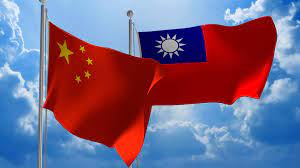Pakistan is grappling with significant economic difficulties, with a foreign debt amounting to $124.5 billion, which is 42% of its GDP.
Despite these challenges, the country has been bolstering its military capabilities through considerable arms imports and collaborations, particularly with China.
According to a report by the Stockholm International Peace Research Institute (SIPRI), China contributed 82% of Pakistan’s arms imports between 2019 and 2023, highlighting a growing military partnership.
“China is strongly contributing to the strengthening of Pakistan’s military by providing fighter jets, warships, missile technology, drones, etc.
This is part of China’s strategy to counter the influence and power of Quad-4 (that includes India) and the West’s other regional alliances,” an opinion piece in the EurAsian Times read.
In 2015, during President Xi Jinping’s visit to Pakistan, a crucial agreement was made for China to build eight Hangor-class submarines for Pakistan, strengthening its naval capabilities.
“The submarines will play a pivotal role in maintaining peace and stability in the region.
It would add a new dimension to the ever-tested Pakistan-China friendship,” said Admiral Naveed Ashraf, Pakistani Chief of Naval Staff.
Despite making military advancements, Pakistan is facing a severe economic crisis worsened by last year’s devastating floods, which slashed the GDP growth projection from 5% to 0.29%.
The national budget shows a 15.4% increase in defense spending, reaching 18000 crore Pak rupees, despite soaring inflation and widespread poverty.
Economic struggles have sparked public discontent, with reports of shortages in basic necessities like food and medicines in Pakistani media.
Many believe that the military holds significant power in Pakistan, controlling a large portion of the national budget and running extensive revenue-generating enterprises.
International discussions, including those conducted by the IMF, reinforce the perception of disproportionate resource allocation to the military over civil needs, according to the EurAsian Times report.
Additionally, recent reports from the BBC and other media outlets suggest that despite Pakistan’s official neutrality in the Ukraine conflict, there have been covert operations involving the supply of arms to Ukraine.
These reports allege that, under American pressure, Pakistan engaged in secret deals that not only violated its stated neutrality but also generated significant profits from arms sales.


